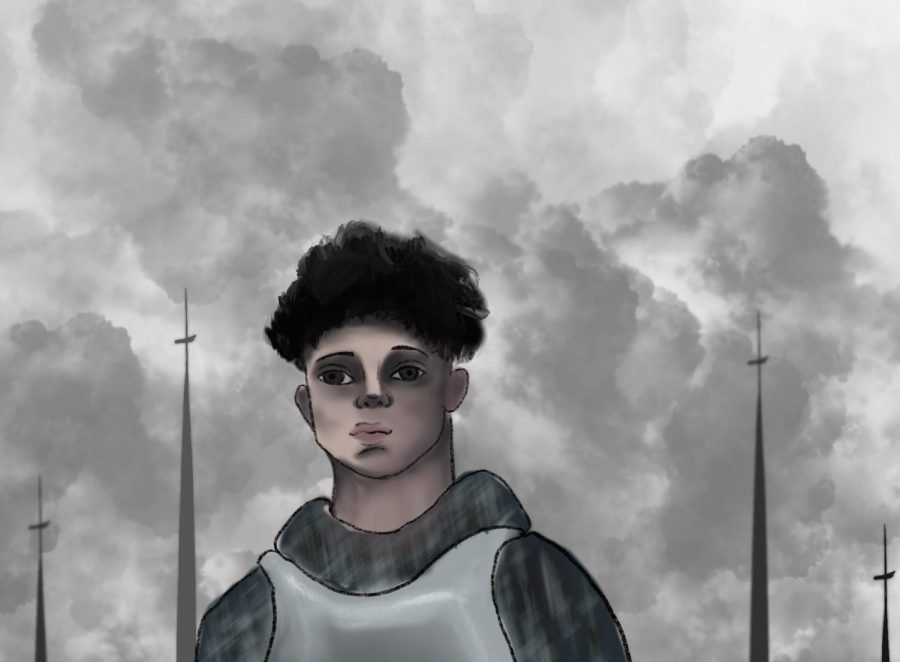“The King” Combines Character Study with Political Drama
“The King” is a new Netflix Original movie based on Shakespearean plays.
January 2, 2020
Rating: 4/5 Falcons
The King, starring Timothée Chalamet and directed by Australian director David Michǒd, was released on Netflix on November 1st, quickly streamed by fans of Shakespeare’s plays and Chalamet’s face alike. The movie is loosely based on the Shakespeare plays Henry IV Part II, and Henry V, and tells the story of King Henry V of England and his rise to power. Throughout the movie, Henry V evolves from undisciplined and willful Prince Hal, who doesn’t want his father’s crown or throne, into the brave, admired, and successful military sovereign, King Henry V. The audience enters the plot a few weeks before the death of Henry V’s father and namesake, Henry IV. But, as Prince Hal does not want the crown, his younger brother Thomas steps up as next in line. However, Thomas dies in battle in France, forcing Hal to become king and setting the plot of the story in motion.
Potential historical inaccuracies of The King are excused by the crafty and engaging artistry of the movie. There are good reasons to stretch the truth in historical films, and one of them is to create a character who is appealing on-screen. While Shakespeare may not have focused on character development in his plays, especially with regards to Henry V, this movie centers on the development of Hal, crafting a compelling character study as a result. Not only does the film’s narrative arc contribute to the engaging nature of the story, but Chalamet’s emotional acting makes the film more than just an opportunity to learn as well.
Because of Prince Hal’s journey to becoming king Henry V, I would describe this movie as a coming-of-age plot wrapped in a historical drama. While this trope has been used many times in films before, The King nevertheless makes for a compelling watch, because, like other movies of its kind, it injects humanity and emotional insight into often lifeless historical figures. Still, especially in its first half, The King is somewhat long-winded. These dull moments are necessary to forward the plot and character development, but nonetheless they strain the film’s pacing and the audience’s attention. A majority of these scenes don’t include Chalamet: his performance is what makes The King enthralling.
Considering that The King is a movie about the old British monarchy, there is, of course, political drama inherent in its plot as well. As King Henry V comes into power, he is met with insults from the Dauphin of France, which led to his first conflict as a ruler: will he ignore the insults or will he fight back? As he negotiates the urgings of his court with his own morals, the drama intensifies. As a result of the well-executed character development in the movie’s first half, the audience is gripped by King Henry V’s struggle. This movie balances emotional pull with complex political intrigue, while also providing historical information. I would recommend watching it when you get a chance, even if Shakespeare isn’t typically your thing.
This piece also appears in our December 2019 print edition.










